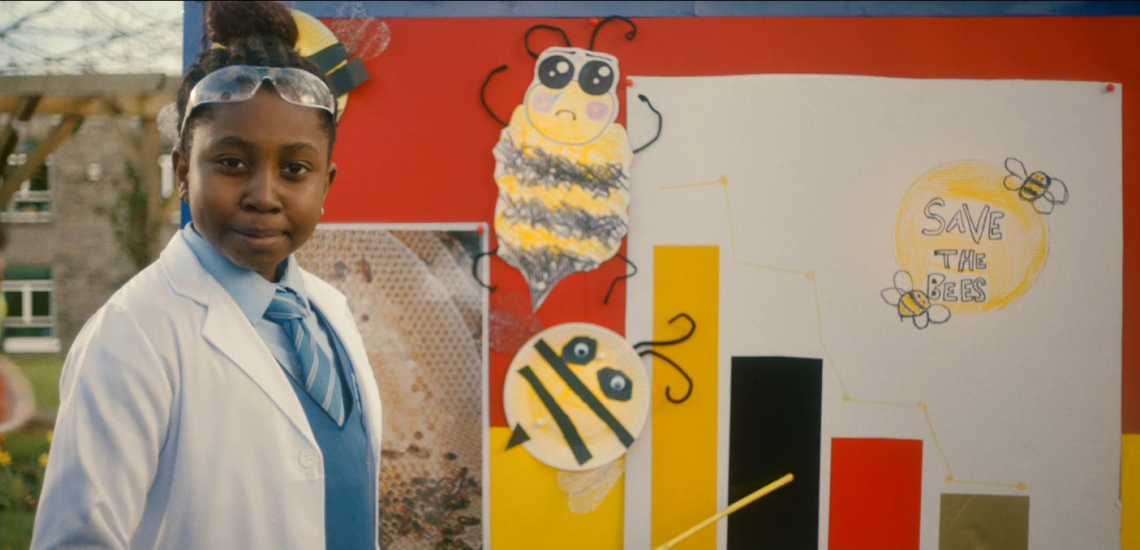The Importance of Bees

One third of our bee species is threatened with extinction from Ireland. This is because we have drastically reduced the amount of food (flowers) and safe nesting sites in our landscapes.
In 2015 bee experts in Ireland came together to produce the All-Ireland Pollinator Plan. It was decided to do this because lots of our bees are in big trouble and could disappear from Ireland if we don’t do something to help.
Without bees, our wildflowers would begin to disappear, and we wouldn’t be able to grow our own fruits and vegetables.
We, at SuperValu, don’t want this to happen, we want to hear the buzz of hard-working bees carrying out their important pollination work. We want them to be there so that we can grow healthy food to feed you, now and for generations to come.
To help stop bees disappearing from Ireland we have teamed up with the National Biodiversity Data Centre of Ireland and the All-Ireland Pollinator Plan. We want to teach everyone about the importance of bees, why we need them to pollinate and the significant role they play in conserving our natural environment.
To find out more about the great work of the All-Ireland Pollinator plan click here.
Why do we need bees?
We know that pollination occurs when pollen is moved from flower to flower, and that it means the plant can make seeds. These little seeds will grow up into new plants. We eat a lot of plants so it’s very important that there is always enough to feed the people in the world. The plants we eat are called crops. Bees are really important to make sure we keep on growing healthy and delicious food; so that when we go to the supermarket we can choose from lots of fruit and vegetables. Things would get pretty boring if it was just bread, rice and corn on the shelves day after day!
In order to make 1 pound of honey, 2 million flowers must be visited by Honeybees!
For a strawberry flower to turn into a strawberry it needs to be visited five times by a bumblebee or 15 times by a honeybee. That’s just for one strawberry!
We also need Bees for a whole lot of other fruit and vegetables like Apples, Pears, Blackberries, Pumpkins and Beans.
Who else needs bees?
Farmers
Lots of crops are pollinated by bees, and this helps the farmer with all the work that has to be done on the farm. If farmers had to pollinate the plants by themselves this would take too much time and cost too much money. We would also have a lot less fruit and veg!
Animals and Birds
Lots of our animals and birds feed on fruits and seeds from wild plants that grow in the countryside. Without bees and other insects pollinating these wild plants, they wouldn’t produce the fruits and seeds that animals and birds need to eat. Fruits are the part of the plant that surrounds and protects the seed.
Other Plants
In Europe there are 264 crop plants that we eat. In Ireland alone, we have another 2,300 flowers and trees that grow in the wild. They need to be pollinated too! We know that some of these wildflowers and trees provide important food for our animals and birds. They also provide them with shelter.
Wild plants like buttercups and daisies provide us with a beautiful, colourful place to live. Without bees pollinating our plants, our countryside would be a very dull and boring place. We all understand how important it is to look after the environment and know all the things we can do to take care of our planet. Pollinators do lots to protect the environment too.
Pollinators are in danger!
A lot of our hard-working pollinators are in danger of disappearing forever (becoming extinct). Changes to their homes, the use of chemicals on our crops and nasty diseases spell trouble for bees and insects. We need to work to protect them or they may not be around for much longer.
Climate change is impacting our bees?
Bees and insects don’t like change. They love routine and it is really important for them that the seasons (Autumn, Winter, Spring and Summer) come and go when they are meant to and that the climate (weather) stays the same. If the environment starts to change, then this can cause big problems for our insect friends. If the warm weather comes too soon, bees will wake up early from hibernation and because the
flowers have not yet come out the bees will go hungry with no food to eat. Bees and insects find it hard to live in extreme weather like storms and floods, or snow and frost when it should be warm.